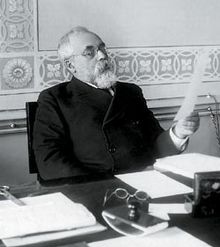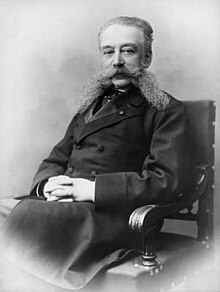1906 Russian legislative election
| |||||||||||||||||
All 497 seats in the State Duma | |||||||||||||||||
|---|---|---|---|---|---|---|---|---|---|---|---|---|---|---|---|---|---|
| |||||||||||||||||
| |||||||||||||||||



Legislative elections were held in the
Background
The State Duma was created in a wave of violent attacks against imperial officials and public upheaval, which culminated in a national strike in October 1905 known as Russian Revolution of 1905, paving the way for Russia's first parliament. With the nation's infrastructure all but paralyzed, Tsar Nicholas II signed a historic manifesto of 17 October 1905, promising civil rights to the population and creating Russia's first parliament.
Electoral legislation
The electoral laws were promulgated in December 1905 and introduced franchise to male citizens over 25 years of age, and electing through four electoral colleges. The elections were therefore not universal as they excluded women, soldiers, and officers. Nor were they equal since the constituencies differed greatly in size.
The general elections to the State Duma took place in March 1906 and were boycotted by the some socialist groups and the Bolsheviks. Among the political parties formed were the peasant leaders' Labour Group (
Results
As official records are vague about the party composition of the Duma, these figures must be understood as educated guesswork. Among the Leftists, it was alleged by the Kadets that 2 members belonged to the Social-Democrats and 17 were Socialist Revolutionaries.[1]
Out of the 36 Duma members from the Congress Kingdom, 34 were Poles who subsequently joined the Polish Club. Another 19 Polish Duma members were elected in
Among the other Jewish deputies were
 | ||
|---|---|---|
| Party | Seats | |
| Constitutional Democratic Party | 184 | |
| Trudoviks | 124 | |
| Union of October 17 | 38 | |
| National minorities | 32 | |
| Rightists | 7 | |
| Independents | 112 | |
| Total | 497 | |
| Source: Political Parties in the Russian Dumas | ||
Members of the First Duma
-
Constitutional Democrats.
-
Constitutional Democrats.
-
Constitutional Democrats.
-
Democratic Reform Party/Labour Group.
-
Labour Group.
-
Labour Group/Social Democrats.
-
Social Democrats.
Aftermath
Basic Law
In April 1906, only weeks after the election, the
Session
The State Duma (and the State Council - the upper house) convened for the first time on 27 April 1906. On 10 May
The anti-autocracy was evident from the first days of the First Duma. In response to the Tsar's opening speech on 5 May, the assembly called for amnesty for political prisoners, real political freedom and equality. Eight days later, the chairman of the
Dissolution
Due to the growing tensions between the State Duma and Tsar Nicholas II's Council of Ministers, prominently Prime Minister Goremykin, the assembly was dismissed by Imperial
See also
- State Duma of the Russian Empire
- State Council of Imperial Russia
- Russian Council of Ministers
- Russian Constitution of 1906
- Sergey Witte
References
- S2CID 144439744.
- ISBN 978-1-57181-264-3.
- ^ Frumkin, Jacob G; Aronson, Gregor; Golʹdenveĭzer, Aleksey Aleksandrovich (1966). Russian Jewry: 1860-1917. New York City: T. Yoseloff.
- ISBN 978-1-4067-0729-8.
- ^ "12. July 1909" (PDF). American Jewish Yearbook (1910–1911): 136.
The Russkoe Znamya declares openly that "Real Russians" assassinated Herzenstein and Iollos with knowledge of officials, and expresses regret that only two Jews perished in crusade against revolutionaries.
- Russian: State Duma of the Russian Federation Official site
- Russian: Сергей Андреевич Муромцев (Sergey Andreyevich Muromtsev)
External links
- Phillips, Walter Alison (1911). . Encyclopædia Britannica. Vol. 23 (11th ed.). pp. 873–875.










